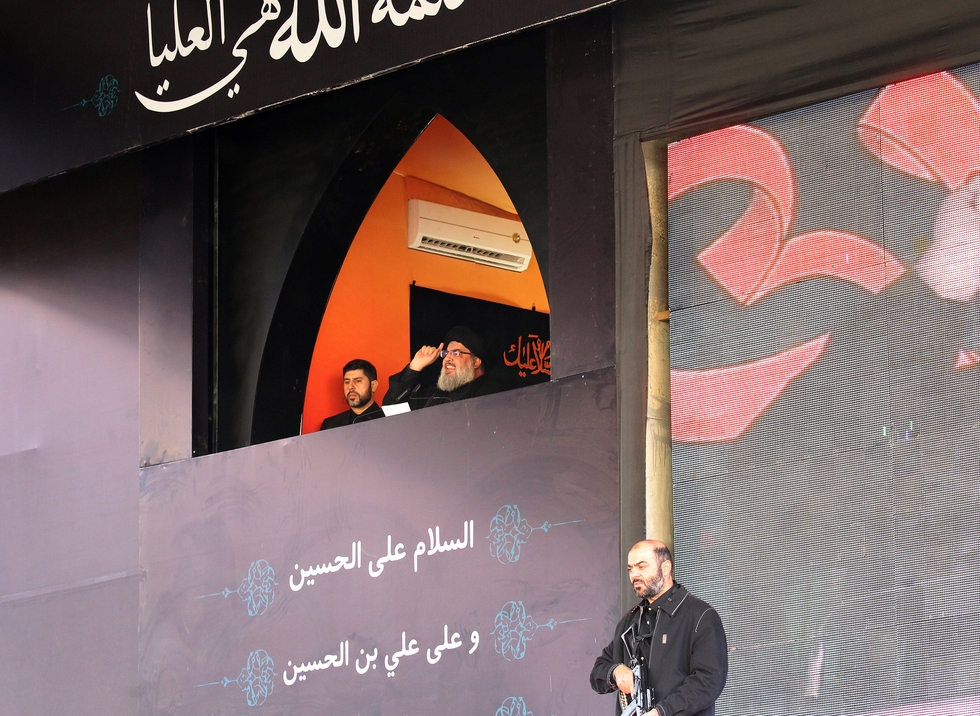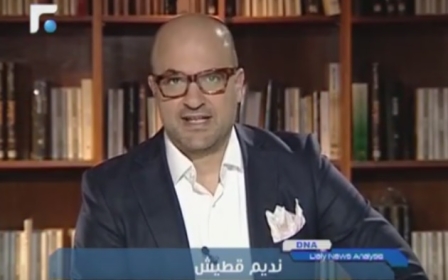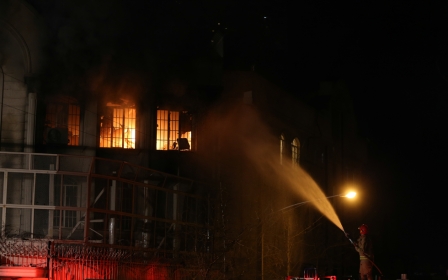The impact of Saudi and Iranian muscle-flexing on Lebanon

Saudi Arabia’s recent execution of 47 people over New Year would not really have stood out in the midst of the raging wars in the region in Iraq, Syria or Yemen. This excessive act of capital punishment would have gone unnoticed, at least by non-Western countries, had the 47 executed men not included one, Sheikh Nimr al-Nimr, a Shia Saudi cleric sentenced to death for leading anti-government protests in the Eastern Province of Saudi Arabia in 2011.
While many look at this act as a rather weak move to overcompensate for Saudi Arabia’s setbacks in Yemen and the region, the reality of the situation is somewhat more intricate. The Saudi decision to stir the pot of Sunni-Shia sectarian strife is perhaps a calculated move on the part of the monarchy to compel Iran and its patrons into an all-out confrontation, where the latter would resort to force to maintain its status as the universal protector of the Shias. By doing so, Saudi Arabia and its Sunni allies would thus mobilise the Sunnis who have thus far remained on the fence and have refrained from labelling themselves with their sectarian identity.
Nimr had become famous for his fiery speech denouncing the rule of tyrants across the region from the al-Sauds in Saudi Arabia, the al-Khalifas in Bahrain and Bashar al-Assad in Syria. Naturally, none of Nimr’s criticism fell on his Shia co-religionists in Iran or elsewhere, thus marking Nimr, at least in the eyes of the Sunnis, as a fifth-columnist doing the bidding of Iran. This perception was further reinforced by the harsh remarks of Iran's Supreme Leader Ali Khamenei, who declared immediately after Nimr’s execution that "shedding the blood of this innocent martyr will have an immediate impact, and the hand of divine vengeance will snatch Saudi politicians by their necks".
'Death to the house of Saud'
Hassan Nasrallah, secretary-general of Hezbollah, followed suit with a more blatant and aggressive attack against Saudi Arabia and its allies. Nasrallah, who in the recent past had called for the "death of the house of Saud," continued his attack by wondering: "Is not it high time to say courageously and regardless of all scores that the principle and spirit of the takfiri thought which destroys, murders, commits massacres and threatens the whole world is produced by al-Saud?"
Nasrallah also wondered why the al-Sauds decided to go through with the execution of Nimr knowing quite well the effect it would have on them both regionally and beyond.
Hezbollah’s unceasing attack on Saudi Arabia and its Lebanese allies, particularly former prime minister Saad al-Hariri, has demonstrated the limit and the futility of their military might against the regional Sunni wall the Gulf countries are trying to build in response to Iran’s dominance. Two events that have transpired recently attest to the aforementioned.
The first event was Lebanon’s decision to join the Saudi-led Islamic alliance against terrorism. Obviously, this 34-nation military coalition will not disturb the military balance in the region nor curb the spread of terrorism, but it is a clear message to Iran and its allies that their so-called dominance of the Middle East will not go unchallenged.
Hezbollah deputy secretary-general Sheikh Naim Qassem's response to this challenge was to attack the incumbent Lebanese prime minister, Tammam Salam, by asserting that "Lebanon will not join the 'Islamic Alliance' announced by the hypocrite Saudi that is involved in terrorism". Coincidently, Lebanon did officially join the alliance, and Hezbollah was even unsuccessful in forcing Foreign Minister Joubran Basil, Hezbollah's main Christian ally, to condemn this move.
'The road to Jerusalem'
Another example demonstrating Iran’s limitations and failures to optimise on its military might is the recent fighter evacuation from the besieged Syrian city of al-Zabadani in return for the withdrawal of the besieged fighters in the Shia villages of Kefraya and Foua in the north of Syria.
Early on in their drive to cleanse the al-Qalamoun region - which includes al-Zabadani - of Syrian rebels, Nasrallah strongly affirmed that "the road to Al-Quds [Jerusalem] passes through Qalamoun, Zabadani, Homs, Aleppo, Deraa, Hassakeh and Swaida," a journey which the recent swap seemed to have further delayed.
The reality remains that the Syrian rebels in Zabadani were able to survive an all-out offensive by Hezbollah and the Syrian regime, and, despite the many losses and the virtual destruction of the city, over a hundred fighters were evacuated in buses from Syria to Beirut airport, from where they were flown to Turkey. Furthermore, while these Shia villages were saved from an imminent massacre according to Nasrallah, the bleak reality remains that the 10,000 civilians of these Syrian villages have permanently lost their homes and have joined their fellows Syrians as mere refugees.
Iran and Hezbollah by extension, like the Soviet Union before them, want to be perceived as the defenders of the oppressed and the supporters of all liberation movements. However, in this case, these movements need to be strictly directed towards Sunni regimes. Iran thus far assumes that carrying a big stick and occasionally using it would be enough to keep its image as a regional actor. However, in a region where all parties involved can either buy or outsource people with big sticks to do their bidding, Saudi Arabia is not in so bad a position as its opponents are preaching.
No Saudi downfall anytime soon
Western analysts and Iranian official alike have been predicting the downfall of Saudi Arabia either because of the deteriorating economic conditions brought about by the falling price of oil or because of the sectarian intolerance of the regime.
The reality remains that this not-so-progressive regime, to say the least, has survived the 1970s' economic stagflation as well as the challenge of Arab nationalism and communism combined. Therefore Iran, by trying to adopt the same Cold War tactics the Soviets utilised, might perhaps yield to the same unpleasant fate.
Nimr al-Nimr’s execution and the many perhaps bold and reckless acts the Saudis are willing to commit in the future can only reinforce their standing in the raging sectarian Sunni-Shia war.
But Iran appointing itself as a defender of the Shias and actually providing this protection are completely separate things. The execution of Nimr and Iran’s supposed status in Syria and Yemen are further assertions that the Shia at the end of the day are merely 10 percent of the entire world Muslim population, a reality no nuclear deal can change.
-Makram Rabah is a PhD candidate at Georgetown University’s history department. He is the author of A Campus at War: Student Politics at the American University of Beirut, 1967–1975 and a regular columnist for Now Lebanon.
The views expressed in this article belong to the author and do not necessarily reflect the editorial policy of Middle East Eye.
Photo: Head of Lebanon's Shia movement Hezbollah, Hassan Nasrallah, delivers a speech in Beirut's southern suburbs on 24 October, 2015 (AFP).
New MEE newsletter: Jerusalem Dispatch
Sign up to get the latest insights and analysis on Israel-Palestine, alongside Turkey Unpacked and other MEE newsletters
Middle East Eye delivers independent and unrivalled coverage and analysis of the Middle East, North Africa and beyond. To learn more about republishing this content and the associated fees, please fill out this form. More about MEE can be found here.





